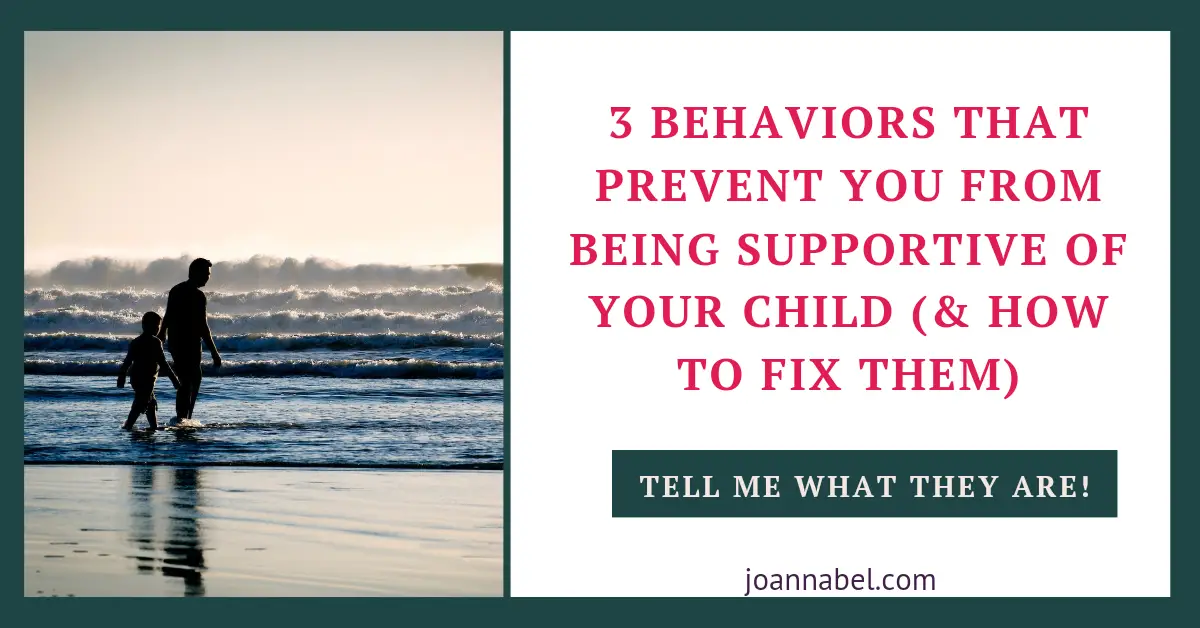You’ve heard those sayings – Oh, you have such good children, they do everything you say! Or What a good child, they obey all your commands! And finally, those numerous article headlines like How to get your child to obey? or How to make your child listen the first time? that can make you feel guilty if your child doesn’t, and likes to follow their way, explore the environment, and test the boundaries. Just as we all do our whole lives. Yet we somehow deny it to kids and unconsciously nurture higher criteria for good child behavior than we do for ourselves (adults).

A Mischievous Child Who Is Non-Conforming
Don’t get me wrong, many of these articles aim to help parents, and some of them might not exactly invite you to kill your child’s agency and strong will. Still, they do (unintendedly) suggest, starting from the headline structure, that having an obedient child is a virtue that you should cultivate and celebrate. Which then leads us to the conclusion that having a mischievous child who disobeys means having a problem to solve.
I invite you to reconsider and explore with me now how to perceive insubordination, mischief, and a mischievous child instead. Naturally, here’s we’re talking about disobedience behind which is playful, curious, and non-harmful behavior.
Note: Although I am a Clinical Social Worker, engaging with this website does not establish a professional social worker-client relationship. The information provided here is for general purposes only and should not be considered professional advice. While we strive to ensure accuracy and reliability, this content is not a substitute for professional guidance. For specific concerns, issues, or situations, it is essential to consult a qualified professional and present your situation. Read the full Disclaimer here.
Going Against The Norm
What if you were to do the exact opposite and support your child’s curiosity that leads them to make mistakes while trying to learn new things? What if you were to praise them for being empowered to try doing things their own way?
Or promote their courage to say no to unfair doings?
And finally, how about celebrating their mischievousness resulting from their intelligence?
I’m not inviting you to forget about setting limitations, instilling prosocial values, or demonstrating appropriate behavior that supports fostering respectful interpersonal interaction.
What I’m saying is to nurture flexibility, think from a child’s perspective frequently, and simply imagine who you want them to be in 10 years from now.
Thinking About The Near Or Even Far Future Ahead For Your Mischievous, Non-Conforming Child

Would you be satisfied if, in 10 to 20 years, your child, instead of into an autonomous person, grows into those head-nodders you see everywhere with no true integrity, determination, or self-reliance?
Those who just show loyalty to power figures without a second thought about the consequences of their obedience?
Or those that nurture moral relativism when it comes to things like social injustices, just because the status quo suits their material interests?
If your answer is NO, then start thinking about how you can prevent it from happening.
I invite you to start welcoming a mischievous child into your family dynamic.
Redefining What A Good Child Is
A mischievous, ready-to-be disobedient child is usually a highly intelligent child. A child who is curious, free-spirited, likes to experiment, doesn’t want to just follow orders blindly, but seeks answers and logical explanations.
This child will question authority and even push the boundaries of social conventions from the youngest age.
Many might be fooled that just because these kids don’t follow grownups’ orders easily, they’re not good children. But be cautious not to confuse a good child with an obedient child.
A (perfectly) obedient child that adapts themselves to everyone else’s convenience and demands without ever opposing or rioting isn’t a good child. Not for themselves or others (potentially). Except for those others who are ready to use people how they like, and deceive them, so these obedient people can serve their selfish interests.
A good child is a child who doesn’t obey undeserving unjust authorities, dares to stand up to them, and is willing to go against the norm when the norm serves the ongoing injustice.
And don’t think that young children and adolescents don’t have the capacity to do these things. Especially when they feel supported. (And who can support them best than you?)
Saying Congrats To Yourself Because You’re Raising A Child Who Is Not Conforming and Disobedient
If this is your child, your parenting job is well-done, so pop the champagne, because your disobedient child could potentially start changing the world as soon as they get a chance.
Among other things, they won’t make peace with others exploiting them or other people, with the struggle of the underprivileged and the innocent, and will be ready to do the right thing.
They also won’t put up with disempowerment and discrimination against those who don’t fit the norms fabricated by those who seized power just so they can protect their privileged positions.
Another thing that happens here is that, when you enable them to oppose and question things that you, (or other authority figures in their lives,) say, do, or ask of them, you are giving them a chance to learn to seek justice in a prosocial manner.
As opposed to leading them into an aversion toward authority figures. And later on, struggling with excessive rebellion, when you keep “forcing” them to obey the rules without any negotiation or participation from their part.
This often than not leads them to grow into folks who are always taking justice into their own hands. Without ever relying on other disposable and relevant resources or institutions in society that could serve them. That’s because the first authority figures that they met disrespect their sense of justice.
It’s Not Enough For A Child To Just Develop Sound Judgment
When a child is ready to call out others for being unfair, disrespectful, lying, or deceiving, this can be a sign that a child has sound judgment and that you have a “good” child in front of you.
If they’re not encouraged to say no when it feels right to them, they can learn to stay silent in their lane instead of being empowered to speak out their truth.
To empower them, we, as adults, must start de-centering from our “convenient” position and start including the child’s perspective on things that are occurring in their social environment.
Besides including children in conversation, we must also question our words, orders, action, and decisions by asking ourselves questions such as:
– Have I thought this true?
– Am I being (too) self-centered or selfish?
– Am I being disrespectful toward my child?
– Am I showing I don’t trust my child’s competence?
– Is this a fixed and scarcity mindset I’m nurturing?
– Am I overprotecting my comfort zone?
– Have I endangered my child’s emotional needs or human or child rights?
– Did I put my child in a stalemate position?
Trusting Yourself Even When You’re The Only One Who Sees Right Through The Disobedience
And finally, maybe the most important part is to not let others convince you that something is wrong with your child just because they’re not head-nodding as expected. Too many people still continue to be stricter with children than with adults because they have ingrained misconceptions about children and child behavior.
This is not something they’ll necessarily say, but their treatment of children says it for them. They believe children are there to listen and that kids should EARN the right to be respected or seen as competent and autonomous to be treated as equals. Or that they don’t even have the right to be treated as equals because they’re not equal, and their purpose in life is to obey adults because they belong to them.
I know you know better, which is why you will refuse to be head-nodding yourself, and confront those who try to dominate you and your children and shame you for letting them “misbehave”.
Set the best example for your child of what it means to stand up to disrespectful others. Protect your child’s integrity and show everyone how proud you are of living with such an authentic person like you child.
Latest Posts:
- Special Gifts to Let Someone Know You’re Thinking of Them (13)

- 100 Ways to Challenge Yourself (Without Stretching Yourself Too Thin)

- What To Do When Your Parent Struggles With Alcohol

- How To Navigate Moving to a New Home With Your Kids

- Prenups for Young Couples (A Modern Approach)

- What Happens When You Sign A Prenup (Relationship-Wise + Legally)

FINAL THOUGHTS ON MISCHIEVOUS CHILD
Raising a mischievous child is not a sign that you’re falling short—it’s proof that your child is full of potential. By supporting their curiosity, celebrating their courage to question authority, and empowering their independence, you’re helping them grow into strong, resilient individuals who aren’t afraid to stand up for what’s right.
Mischief is not a problem to fix; it’s often a sign of intelligence, boldness, and a budding sense of integrity. The goal isn’t to mold an obedient follower but to nurture a confident, authentic person who will one day challenge the status quo and contribute to the world with unwavering purpose.
Your parenting journey is yours alone, and embracing this perspective will not only deepen your connection with your child but also prepare them to inspire change. So take pride in raising a child who dares to think, question, and be different.
I’m rooting for you! See you in the next post such as this one:









Leave a Reply